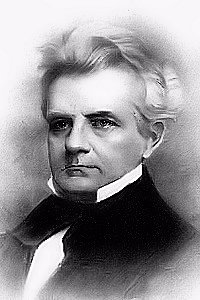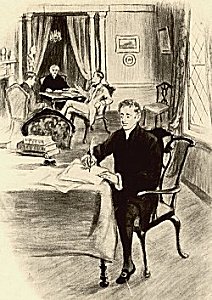On Whit Sunday, 1819, Dr. Shipley, Vicar of Wrexham and Dean of St. Asaph, preached in Wrexham Church in aid of the Society for the Propagation of the Gospel, on behalf of whose Eastern missions a Royal Letter had just been issued authorizing collections in every church. A course of Sunday evening lectures also began the same day in Wrexham Church, and Heber was to give the first lecture.
Dean Shipley, his father-in-law, asked Heber on the Saturday to write ‘something for them to sing in the morning.’ Heber moved from the table where the dean and a few friends were sitting to a distant part of the room.
After a little time the dean asked, ‘What have you written?’ Heber read the first three verses. ‘There, there, that will do very well,’ was the comment. ‘No, no, the sense is not complete,’ was the poet’s reply.
He wrote the fourth verse, but the dean would not listen, when he begged ‘Let me add another; oh, let me add another.’ All was done in twenty minutes.
It was said to have been sung next morning in Wrexham Church to an old ballad tune, ‘Twas when the seas were roaring.’ The hymn was published in the Evangelical Magazine, 1822, and in the Christian Observer, February, 1823.
The original [manuscript] was long in the possession of Dr. Raffles, of Liverpool. He probably obtained it from the printer, Kennedy, who set up the type as a boy and who was a friend of his. It was sold after his death for forty guineas.
Heber first wrote ‘savage’ in ver. 2, but altered it in his MS. to ‘heathen.’ The MS. is in the John Rylands Library…
Heber says in his Journal of a Voyage to India, September, 1823, ‘Though we were now too far off Ceylon to catch the odours of the land, yet it is, we are assured, perfectly true that such odours are perceptible to a very considerable distance.
In the Straits of Malacca a smell like that of a hawthorn hedge is commonly experienced; and from Ceylon, at thirty or forty miles, under certain circumstances, a yet more agreeable scent is inhaled.’ This note is an interesting comment on ver. 2.
Telford, pp. 395–6
This hymn is considered one of the finest missionary hymns in the English language. One wonders what we’d have received had Heber been allowed to continue writing!


